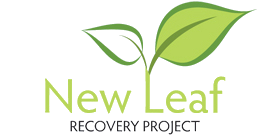Drug Withdrawal Symptoms: The Importance of Professional Help

When attempting to overcome a drug addiction, your body and mind can suffer from a wide range of physical and emotional withdrawal symptoms. These can make it very difficult to successfully navigate the initial detoxification period that is essential for recovery.
Detoxification is not just about eliminating toxins from the body, but also about managing these withdrawal symptoms safely and effectively. Given that symptoms can vary significantly in intensity, from the mildly discomforting to the life-threatening, it’s vitally important not to attempt to navigate the detoxification period alone. Instead, it’s crucial to seek professional help to ensure your safety when withdrawing from substance use.

Mild Emotional Symptoms of Drug Withdrawal
For some individuals, emotional withdrawal symptoms may be the first signs of drug dependency. These symptoms can be subtle but still have a noticeable impact on a person’s wellbeing:
- Anxiety: Feelings of unease and worry when not using the substance.
- Irritability: Feeling easily frustrated or annoyed, often in situations that wouldn’t normally warrant it.
- Restlessness: Struggling to relax or feel at ease when off the substance.
- Poor Concentration: Difficulty focusing on tasks or staying engaged in conversations, especially when thinking about the substance.
- Insomnia: Trouble falling asleep or staying asleep, often made worse by anxiety or cravings.
These emotional symptoms of drug addiction withdrawal can affect a person’s ability to function in daily life. Early intervention with professional support can help manage these symptoms before they escalate. Here at New Leaf Recovery, we have dedicated GPs who can effectively manage your early withdrawal symptoms. With the right medical and emotional support, you can successfully navigate the detoxification period that is essential for long-term recovery.
Seek Support with New Leaf TodaySevere Emotional Symptoms of Drug Withdrawal
In more severe cases, emotional withdrawal symptoms can become overwhelming and even dangerous without professional help. These can include:
- Severe Anxiety or Panic Attacks: Intense worry or fear that feels out of control, sometimes accompanied by palpitations or shortness of breath.
- Depression: Deep feelings of sadness, hopelessness, or even thoughts of self-harm. This can be especially dangerous if left unmanaged.
- Paranoia: Feeling intensely distrustful or suspicious of others, often without logical reasoning.
- Hallucinations: Hearing, seeing, or feeling things that aren’t there, which can be incredibly distressing.
These severe emotional symptoms are clear signs that the body and mind are struggling to cope without the substance. Immediate medical supervision and emotional support are necessary to avoid life-threatening situations, including mental health crises.
Reach Out and Give Us a Call TodayMild Physical Symptoms of Drug Withdrawal
Physical symptoms of drug withdrawal can also be mild, but they should not be ignored. Even at this stage, they indicate that the body is starting to detox from the substance:
- Headaches: Tension or migraines can occur as the brain adjusts to the absence of the drug.
- Sweating: Mild perspiration or hot flashes as the body works to remove toxins.
- Shaking or Tremors: Minor shaking of the hands or limbs, often linked to anxiety or physical dependency.
- Nausea: A common symptom during early withdrawal, often leading to discomfort but not vomiting.
- Muscle Tension: Feeling tightness or stiffness in the muscles, making it hard to relax.
While these symptoms may not seem severe, they can still cause discomfort and stress. Professional care during this stage of detox can ease these symptoms, helping individuals stay on track in their recovery journey.
Severe Physical Symptoms of Drug Withdrawal
Some substances, such as opiates and tranquilizers, can cause more severe physical symptoms during withdrawal. These symptoms can become life-threatening without proper medical intervention:
- Seizures: A dangerous withdrawal symptom, often associated with abrupt discontinuation of alcohol or benzodiazepines.
- Racing Heart or Palpitations: This can increase the risk of a heart attack, especially in those with underlying health conditions.
- Difficulty Breathing: Shortness of breath or chest tightness may indicate more severe withdrawal complications.
- Nausea, Vomiting, or Diarrhoea: Severe gastrointestinal distress can lead to dehydration and malnutrition, further weakening the body.
- Delirium Tremens (DTs): Violent shaking, seizures, and hallucinations, requiring immediate medical attention.
Experiencing these withdrawal symptoms of drug addiction highlights the importance of not attempting detoxification alone. A medically supervised detox ensures that these risks are monitored and managed, reducing the likelihood of serious complications such as heart attack, stroke, or even death.
Seek Support with New Leaf TodayHow Long Do Drug Withdrawal Symptoms Last?
The duration of drug withdrawal symptoms varies depending on several factors, including the substance used and the person’s overall health. Mild withdrawal symptoms may begin within hours of stopping the substance and can last for several days, while severe withdrawal symptoms might peak after a few days and persist for weeks.
While the timeline for how long drug withdrawal symptoms last varies, medical professionals can help manage and shorten the intensity of these symptoms with appropriate care and medication. This makes seeking professional help vital for a safer, more manageable detox.
Seek Professional Help With New Leaf Recovery Today
Drug addiction withdrawal is not just a physical process; it deeply affects your emotional wellbeing too. Whether you’re dealing with mild emotional discomfort or severe physical distress, attempting to detox alone can be a very risky process. As your dedicated detoxification centre, the professional support offered by New Leaf Recovery ensures that you have the guidance, medical supervision, and emotional support needed to safely navigate this critical first step in recovery.
By working with experienced professionals, you can minimise the risks associated with withdrawal symptoms, find relief from the discomfort, and build a foundation for long-term recovery. We offer bespoke detoxification programmes here at New Leaf which are tailored to the individual needs of each of our clients. This means that no matter how severe symptoms are, we’ll be able to offer you the dedicated, tailored support you need to make a sustained, lasting recovery.
If you or a loved one are experiencing the symptoms of drug withdrawal, contact New Leaf Recovery today. We’re here to help you turn over a new leaf and take the first step toward a healthier, addiction-free future.
Reach Out Today and Give Us a CallReceive a Free Call Back
"*" indicates required fields
Our Complete Recovery Journey - from your initial enquiry, all the way through treatment and beyond into ongoing support, New Leaf Recovery are there to guide and support you.
New Leaf offers a complete journey of treatment - from initial detoxification and rehabilitation to ongoing support, including aftercare, family support, and beyond into long-term recovery.
Getting the right accommodation enables us to provide the right backdrop for our recovery methods. Any form of rehabilitation needs to happen in a safe, comfortable, secure and friendly environment.
Receive a Free Call Back
"*" indicates required fields










